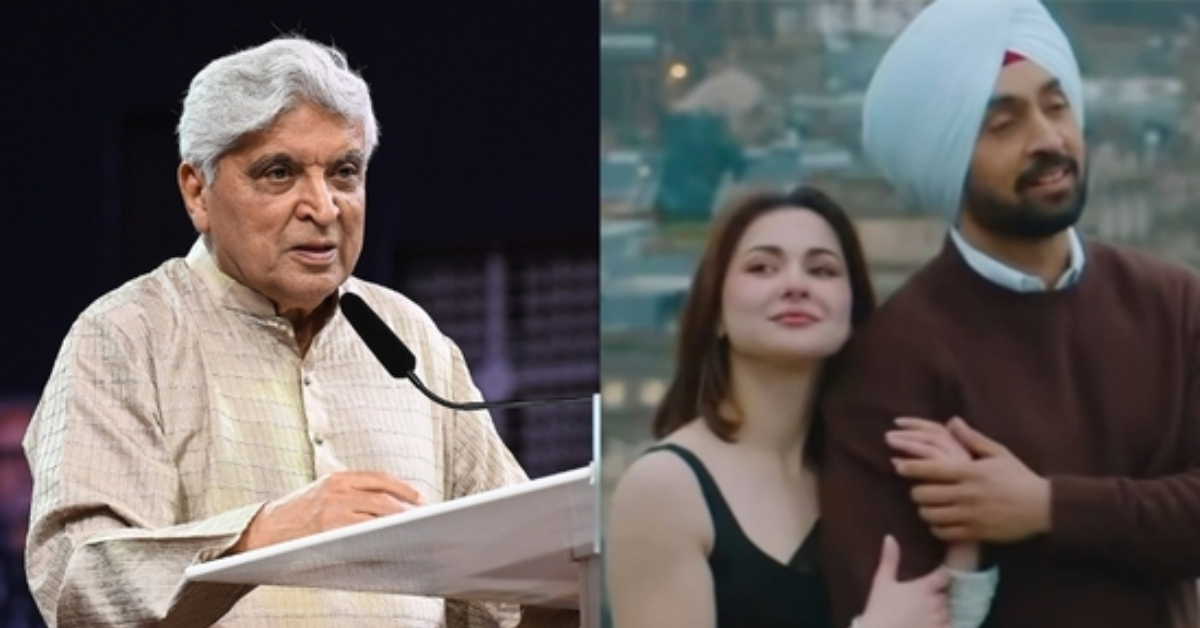Veteran lyricist, screenwriter, and outspoken voice in the Indian film industry, Javed Akhtar, has once again made headlines with his sharp criticism — this time, defending actor-singer Diljit Dosanjh and his film Sardaar Ji 3, which has reportedly come under an unofficial ban or de facto restrictions.
In a time when cinema continues to face cultural and political backlash, Akhtar’s remarks are not just personal but echo a deeper concern about freedom of expression, artistic integrity, and the impact of nationalism on creativity.
Let’s explore the controversy, Akhtar’s reaction, and why this incident matters for the broader Indian film industry.
🎥 The Background: Sardaar Ji 3 and the Rising Tension
Sardaar Ji 3, starring Diljit Dosanjh, is the latest installment in the popular Punjabi film franchise known for its mix of comedy, drama, and strong regional identity. With Dosanjh riding high on both musical and cinematic popularity, the film was expected to draw significant audiences, especially among youth and Punjabi-speaking viewers.
However, controversy brewed quickly, allegedly due to:
- Past political stances or social media posts linked to Dosanjh
- His perceived support for causes like the farmers’ protests
- Accusations — unfounded or not — about his ties to “anti-national elements” or soft-corner towards Pakistan
Despite no official government statement, there appears to be a shadow ban, where theatres are reluctant to screen the film or have been “advised” against promoting it. Online platforms too are reportedly avoiding it in trending sections or recommendations.
🗣️ Javed Akhtar’s Bold Response
Never known to mince words, Javed Akhtar came to Diljit’s defense in a public forum, stating:
“If the movie flops, it’s not the Pakistani’s money that will drown. It’s Indian money, Indian producers, Indian distributors and Indian technicians who suffer.”
He further added that targeting artists like Diljit in the name of nationalism or personal agendas damages India’s own creative economy and suppresses diversity in storytelling.
Akhtar also used the word “bechara” (poor guy) to describe Diljit’s current situation, highlighting how he’s been made a scapegoat in a politically charged environment.
🎭 Politics vs Art: A Growing Rift in Indian Cinema
Javed Akhtar’s statement underlines a wider issue — the increasing politicization of cinema. Over the past few years, several films and artists have:
- Been boycotted over their political opinions
- Faced bans or delayed releases due to religious or nationalist sentiments
- Been harassed online for their personal backgrounds or community
What used to be art for entertainment and thought is now a battlefield of ideologies, with films being judged not by content but by association.
Akhtar’s fear — shared by many in the industry — is that such unofficial censorship creates a chilling effect where:
- Filmmakers self-censor
- Topics that challenge the status quo are avoided
- Only certain “approved” voices get the spotlight
🎤 The Targeting of Diljit Dosanjh: Why Him?
Diljit Dosanjh, while primarily known for his music and acting, has increasingly become a symbol of modern Punjabi pride and identity. He gained attention for:
- Openly supporting farmers during protests in 2020–2021
- Making global moves in music and performing at major international events
- Maintaining an apolitical, humble public image despite criticism
Some groups have questioned his patriotism, but no evidence has ever proven any anti-national activity. Still, as seen with Sardaar Ji 3, the court of public opinion and unofficial pressure groups seem enough to affect his work.
🎬 Economic Fallout: Who Really Loses?
One of the most critical points made by Akhtar is that such bans hurt Indians more than anyone else:
- Producers face box office loss
- Theatre owners lose footfall and revenue
- Technicians, artists, editors, musicians, and hundreds of crew lose recognition
- Regional cinema, which depends on local heroes like Diljit, suffers
In trying to silence one individual, the entire ecosystem of Indian regional cinema gets punished, making it harder for non-mainstream or non-Hindi content to survive.
🧠 Akhtar’s Legacy of Speaking Truth
This isn’t the first time Javed Akhtar has spoken out on sensitive issues. From freedom of expression to religious intolerance, Akhtar has always positioned himself as a rationalist voice within the creative world.
While his comments often attract both praise and backlash, few can deny his commitment to preserving India’s pluralism and intellectual freedom.
In defending Diljit Dosanjh and Sardaar Ji 3, he isn’t just supporting an artist — he’s defending the idea that art must remain above politics.
🤝 Industry Reactions: Silent Support
While few major Bollywood figures have spoken publicly, support for Diljit Dosanjh has quietly emerged from:
- Independent film producers
- Punjabi cinema community
- Fans and followers on social media
- Neutral observers who believe in equal space for all voices
As awareness grows about such unofficial bans, many are calling for transparency in regulation, accountability of theatre chains, and a fair playing field for artists.
🏁 Final Thoughts: Time to Rethink the Narrative
The case of Sardaar Ji 3 and Diljit Dosanjh is not isolated. It is a symptom of a larger cultural tension where nationalism, identity, and personal beliefs are increasingly intersecting with entertainment.
Javed Akhtar’s voice, respected and sharp, reminds us that:
- Art should not be censored by paranoia
- Cinema reflects society, not threatens it
- Personal attacks on artists only weaken India’s soft power globally
The real question isn’t about one film or one actor — it’s about the direction Indian cinema is heading. Will it remain open, inclusive, and courageous? Or will it continue to narrow its lens out of fear?
Only time — and public support — will decide.



